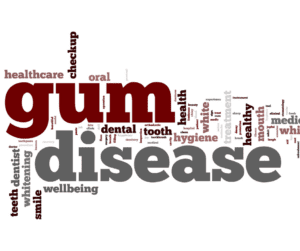Gum Disease: Your Complete Guide to Prevention and Treatment


Gum disease, also known as periodontal disease, is a common oral health issue that affects millions of people worldwide. In this blog, we will explore the causes, symptoms, treatment, and prevention of gum disease. We will dive deep into this often-overlooked topic to help you understand its importance and how to maintain good oral hygiene. As always, we recommend you see your dentist every 6-12 months.
What is Gum Disease?
Gum disease is a prevalent dental condition that affects the tissues surrounding and supporting your teeth. It is essential to address it promptly as it can lead to severe complications, including tooth loss and other health problems. It often starts as gingivitis, a mild form of gum disease, and can progress to more severe stages if left untreated. The main culprits are plaque and tartar buildup.
Gingivitis (Stage 1)
Gingivitis is the initial and mildest form of gum disease. It is often characterized by red, swollen gums that may bleed when you brush your teeth. Fortunately, it is reversible with proper care.
Periodontitis (Stage 2)
If left untreated, gingivitis can progress to periodontitis. This stage involves the inflammation of the deeper supporting structures of the teeth. It can lead to pockets forming between your teeth and gums, and in severe cases, tooth loss may occur.
Common Causes of Gum Disease
- Poor Oral Hygiene: Inadequate brushing and flossing can lead to the accumulation of plaque and tartar, which are primary contributors to this disease.
- Smoking and Tobacco Use: Tobacco products can significantly increase the risk of developing gum disease. Smoking impairs blood flow to the gums, making it harder for them to heal.
- Genetics: Some individuals may be genetically predisposed to gum disease. If your family has a history of periodontal problems, you may be at a higher risk.
- Hormonal Changes: Hormonal fluctuations during pregnancy, menstruation, and menopause can make gums more sensitive.
- Medical Conditions: Certain medical conditions such as diabetes and autoimmune disorders can increase the likelihood of developing gum disease.
Common Symptoms
- Red, Swollen Gums
- Bleeding Gums
- Bad Breath
- Loose or separating teeth
- receding gumline
Treatment Options
Professional Dental Cleaning: Regular dental cleanings are crucial for preventing and managing disease. Your dentist can remove plaque and tartar buildup that brushing and flossing may have missed.
Scaling and Root Planning: For more severe cases, a deep cleaning procedure called scaling and root planning may be required to remove bacteria from below the gumline.
Medications: In some instances, your dentist may prescribe antibiotics or antimicrobial mouthwashes to control the infection.
Preventing Gum Disease
Maintain Good Oral Hygiene: Brush and floss your teeth regularly to remove plaque and food particles.
Visit Your Dentist: Regular dental check-ups can help detect in its early stages.
Healthy Diet: A well-balanced diet rich in vitamins and minerals can promote gum health.
Frequently Asked Questions (FAQs)
Is gum disease reversible?
Gum disease is treatable, especially in its early stages, but it may not always be fully reversible. Prompt treatment is essential.
How can I tell if I have gum disease?
Common signs of gum disease include red and swollen gums, bleeding during brushing, and bad breath.
What happens if gum disease is left untreated?
Untreated gum disease can progress to periodontitis, leading to tooth loss and other health issues.
Are there any home remedies for gum disease?
While good oral hygiene is essential, it’s best to consult a dentist for professional treatment.
How often should I see my dentist for check-ups?
Regular dental check-ups are recommended every six months to detect and prevent gum disease.
How can I prevent gum disease?
Prevent gum disease by maintaining good oral hygiene, a healthy diet, and avoiding tobacco products. Regular dental check-ups are also essential.
Get in touch with our team at Heritage Dental Group on 07 38783384 for more information.
Due for a Dental Check-up? BOOK NOW
